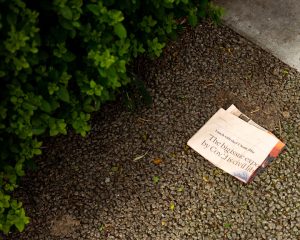From Chaos to Clarity: How to Organize Your Time for Maximum Productivity
Time management is a critical skill that significantly influences both personal and professional aspects of life. It encompasses the ability to plan and regulate time allocation for various activities, enhancing efficiency and effectiveness. Effective time management reduces stress, boosts productivity, and promotes a healthier work-life balance.
It enables individuals to prioritize tasks, establish attainable goals, and optimize their limited time resources. Without proper time management, individuals may experience constant deadline pressure, overwhelming workloads, and difficulty allocating time for important personal matters. A primary advantage of time management is its ability to maximize time utilization.
By establishing clear objectives and priorities, individuals can concentrate on essential tasks and avoid wasting time on less important activities. This approach allows for greater accomplishment in shorter periods, freeing up time for other pursuits. Furthermore, effective time management can alleviate stress and anxiety.
Having a well-defined plan for task completion and time allocation instills confidence and peace of mind when approaching work. This can lead to improved mental and emotional well-being, as well as enhanced performance in both personal and professional spheres.
Key Takeaways
- Effective time management is crucial for productivity and success in both personal and professional life.
- Identifying and eliminating time wasters and distractions is essential for maximizing productivity.
- Creating a structured schedule helps in organizing tasks and allocating time for each activity.
- Prioritizing tasks and setting achievable goals ensures that important tasks are completed on time.
- Utilizing time management tools and techniques such as to-do lists, calendars, and time tracking apps can help in managing time effectively.
Identifying Time Wasters and Distractions
Identifying Time Wasters
To manage our time effectively, it is crucial to identify and eliminate time wasters, which are activities that consume our time without adding any real value to our lives or work. Examples of time wasters include excessive social media use, unnecessary meetings, and procrastination. These activities not only waste our time but also hinder our productivity.
Recognizing Distractions
Distractions, on the other hand, are external factors that divert our attention away from our tasks. These can include noisy environments, interruptions from colleagues, or personal issues. By recognizing these distractions, we can take steps to minimize their impact on our productivity.
Minimizing Time Wasters and Distractions
One common time waster is multitasking, which can actually reduce efficiency and lead to more mistakes. To avoid this, it is essential to focus on one task at a time to complete it effectively and efficiently. Poor planning and organization are also significant time wasters. Without a clear plan, we may find ourselves wasting time trying to figure out what to do next. Additionally, excessive use of technology can be a major distraction, with constant notifications from emails, messages, and social media disrupting our focus and leading to wasted time. By identifying and addressing these time wasters and distractions, we can take steps to minimize their impact on our productivity and overall time management.
Creating a Structured Schedule

Creating a structured schedule is essential for effective time management. A structured schedule helps us to allocate our time wisely, prioritize tasks, and ensure that we have enough time for both work and personal activities. It also provides a clear roadmap for how to approach our daily, weekly, and monthly tasks.
By creating a structured schedule, we can better manage our time and reduce the likelihood of feeling overwhelmed by our workload. When creating a structured schedule, it is important to allocate specific time slots for different tasks and activities. This can help us to stay organized and focused throughout the day.
It is also important to set aside time for breaks and relaxation in order to avoid burnout and maintain productivity. Additionally, it can be helpful to use tools such as calendars, planners, or time management apps to keep track of our schedule and ensure that we are staying on track with our tasks. By creating a structured schedule, we can better manage our time, reduce stress, and improve our overall productivity.
Prioritizing Tasks and Setting Goals
Prioritizing tasks and setting goals are essential components of effective time management. By prioritizing tasks, we can focus on what truly matters and ensure that we are making the most of our time. This involves identifying the most important and urgent tasks and allocating our time accordingly.
Setting goals also helps us to stay focused and motivated, as it provides a clear direction for our efforts and helps us to measure our progress. When prioritizing tasks, it is important to consider factors such as deadlines, importance, and impact. By identifying the most urgent and important tasks, we can ensure that we are allocating our time effectively and focusing on what truly matters.
Setting goals also helps us to stay motivated and maintain a sense of purpose in our work. By setting clear, achievable goals, we can stay focused on what we want to accomplish and track our progress over time. In order to prioritize tasks and set goals effectively, it can be helpful to use tools such as to-do lists or task management apps.
These tools can help us to keep track of our tasks, set deadlines, and ensure that we are staying on top of our priorities. By prioritizing tasks and setting goals, we can better manage our time, stay focused on what truly matters, and achieve better overall results in our personal and professional lives.
Utilizing Time Management Tools and Techniques
Utilizing time management tools and techniques can greatly improve our ability to manage our time effectively. There are a wide variety of tools and techniques available that can help us to plan, organize, prioritize, and track our tasks more efficiently. These tools can range from simple paper planners to sophisticated digital apps that offer advanced features such as task tracking, reminders, and collaboration capabilities.
One popular time management tool is the use of calendars or planners to schedule tasks and activities. These tools can help us to visualize our schedule, set deadlines for tasks, and ensure that we are allocating our time effectively. Another useful tool is the use of task management apps that allow us to create to-do lists, set reminders, and track our progress on various tasks.
These apps can help us to stay organized and focused on our priorities. In addition to tools, there are also various time management techniques that can help us to improve our productivity. One popular technique is the Pomodoro Technique, which involves working in focused intervals followed by short breaks.
This technique can help us to maintain focus and avoid burnout while working on tasks. Another technique is the Eisenhower Matrix, which involves categorizing tasks based on their urgency and importance in order to prioritize them effectively. By utilizing time management tools and techniques, we can improve our ability to plan, organize, prioritize, and track our tasks more efficiently.
These tools can help us to stay organized, focused, and productive in both our personal and professional lives.
Implementing Strategies for Maintaining Focus and Avoiding Procrastination

Practicing Mindfulness to Stay Focused
One effective strategy for maintaining focus is the practice of mindfulness. By practicing mindfulness techniques such as deep breathing or meditation, we can improve our ability to stay present and focused on the task at hand. This can help us to avoid distractions and maintain a clear focus on our work.
Setting Work Periods and Breaks to Maintain Focus
Another strategy for maintaining focus is the practice of setting specific work periods with designated breaks. This can help us to maintain focus during work periods while also allowing for necessary rest periods in order to avoid burnout.
Avoiding Procrastination through Task Breakdown and Deadlines
In addition to maintaining focus, it is also important to address procrastination in order to improve overall time management. One effective strategy for avoiding procrastination is the practice of breaking down tasks into smaller, more manageable steps. By breaking down larger tasks into smaller steps, we can make them feel more achievable and reduce the likelihood of procrastination. Another strategy for avoiding procrastination is the practice of setting specific deadlines for tasks in order to create a sense of urgency. By setting deadlines for tasks, we can create a sense of accountability that can help us to avoid procrastination.
Evaluating and Adjusting Your Time Management System
Evaluating and adjusting your time management system is an important step in improving your overall ability to manage your time effectively. By regularly evaluating your current time management system, you can identify areas for improvement and make necessary adjustments in order to achieve better results. One effective way to evaluate your time management system is by tracking your daily activities in order to identify patterns or areas where you may be wasting time or lacking efficiency.
By tracking your activities over a period of time, you can gain valuable insights into how you are currently managing your time. Another effective way to evaluate your time management system is by seeking feedback from others who may have insights into your current habits or behaviors that may be impacting your ability to manage your time effectively. Once you have evaluated your current time management system, it is important to make necessary adjustments in order to improve your overall ability to manage your time effectively.
This may involve implementing new tools or techniques that can help you stay organized or focused on your priorities. It may also involve making changes to your daily habits or routines in order to create a more efficient workflow that allows you to make the most of your limited time. By regularly evaluating and adjusting your time management system, you can improve your ability to manage your time effectively in both your personal and professional lives.
FAQs
What is time organization?
Time organization refers to the process of planning and structuring your time in order to maximize productivity and efficiency. It involves setting goals, prioritizing tasks, and managing your schedule effectively.
Why is time organization important?
Time organization is important because it helps individuals and businesses make the most of their time, resources, and energy. It can lead to increased productivity, reduced stress, and improved work-life balance.
What are the benefits of organizing your time?
Some of the benefits of organizing your time include increased productivity, improved time management skills, reduced stress, better work-life balance, and the ability to focus on important tasks.
How can I organize my time for maximum productivity?
To organize your time for maximum productivity, you can use techniques such as creating to-do lists, prioritizing tasks, setting goals, managing distractions, delegating when necessary, and using time management tools and techniques.
What are some common time management tools and techniques?
Common time management tools and techniques include to-do lists, time blocking, the Pomodoro Technique, goal setting, prioritization, delegation, and using digital tools such as calendars and productivity apps.













Post Comment